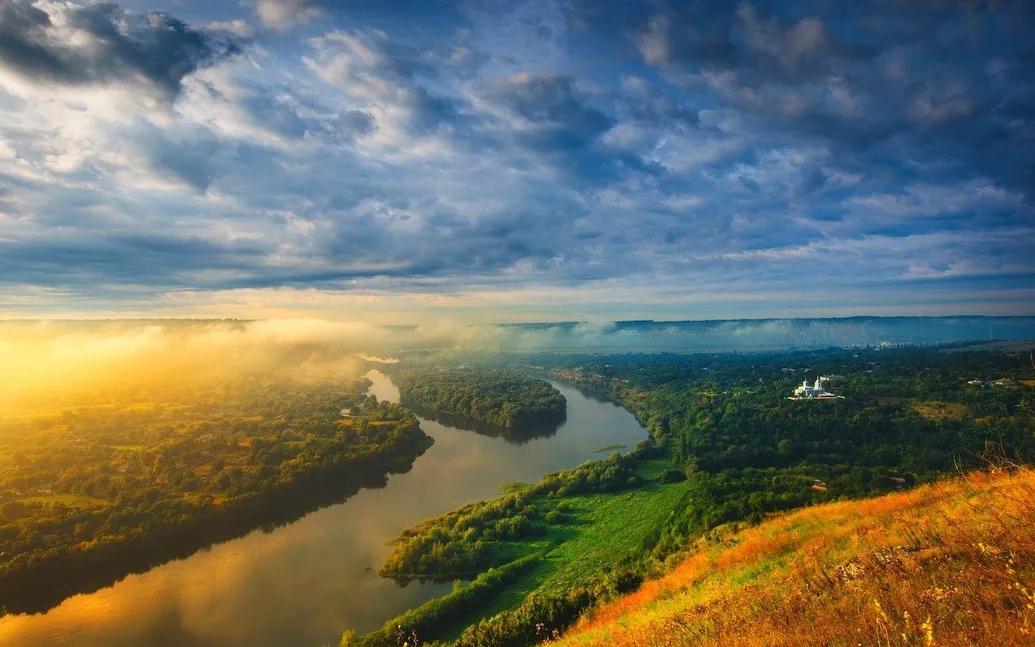Oguz Kaan Kısa · Feb. 6, 2021

Moldova, which gained its independence with the seperation of the USSR in 1991, is in Eastern Europe. Divided by the Prut and Dniester Rivers, the eastern strip separated by the Dniester River belongs to the Trans Dniester Republic, which declared its unilateral independence. The area of the country, which has been subjected to many occupations throughout its history, is 33,846 square kilometers. In Moldova, one of the poorest countries in Europe, the people are very hospitable and friendly.
Although the Moldovan population constitutes the majority in terms of ethnic distribution in the country, Gagauz people of Ukrainian, Russian and Turkish origin also live there. Cathedrals, sculptures and museums have been preserved in the country, which survived the Second World War with great economic damage. In addition, the house where Alexander Pushkin stayed in the capital Chisinau during his exile is one of the most important touristic places in the country.
The capital of Moldova is Chisinau. Although its final status is controversial, the Moldovan government has no control over the de facto republic Transnistria, which lies east of the Dniester River.
This small country of Eastern Europe is located in the north of the Balkans. The country has Romania in the southwest and Ukraine in the northeast.
Moldova's official language is Romanian. At the same time, Russian is seen as both the first language and the second language in the country. Ukrainian and Gagauz are also spoken by minority groups. In addition, French and English are taught in schools as foreign languages.
The Eastern Orthodox population is the majority in Moldova. In the country where 98 percent of the population is Eastern Orthodox, 1.5 percent of Jews live.
Especially the capital city of Moldova, known for its cheap and delicious food, is famous for its restaurants. Service is a bit slow in the country where you can taste many traditional dishes. Be sure to try the small sausages served with onion and red pepper, which they call mititei, and the pork stew prepared with a sour sweet sauce with watermelon and apple called tucano.
Many local and international festivals are held in Moldova. In general, the center of festivals is the capital city of Chisinau. Gustar Festival is one of the oldest festivals in the country. The festival, which takes place in Old Orhei on the last weekend of August, takes its name from the archaic word gustar, meaning when there are grapes. During the festival, you can both listen to the local music of the country and experience the delicious dishes of the country cuisine in nature. Another traditional festival, Nufărul Alb, is held every July in Cahul. Folk artists and dancers turn the streets into a feast in the festival, where many handmade products are exhibited. The Wine Festival, held in the first or second week of October, brings together many wine and liquor producers.
Bitei, the first of the country's international festivals, is also the only international festival of performing arts. The festival, which includes theater, music, dance and street performances as well as puppet theater and folklore performances, is held in Chisinau every May. Another international festival is Chronograph Moldova's international documentary film festival. Also, in the festival held in Chisinau in May, there are also sections such as video advertisements and music videos. Finally, Mortisor, which is held in Chisinau in the first week of March, is one of the largest music festivals in the country. Nearly 40 concerts are performed within the scope of the festival. In addition to symphonies, theater plays are performed.
Many local gift options await you in Moldova. While returning from the country, you can buy local colorful clothes for your loved ones. In addition, handmade carpets and locally produced wine and brandies are among other ideal gift alternatives.

 Back
BackLet us find your dream university.
